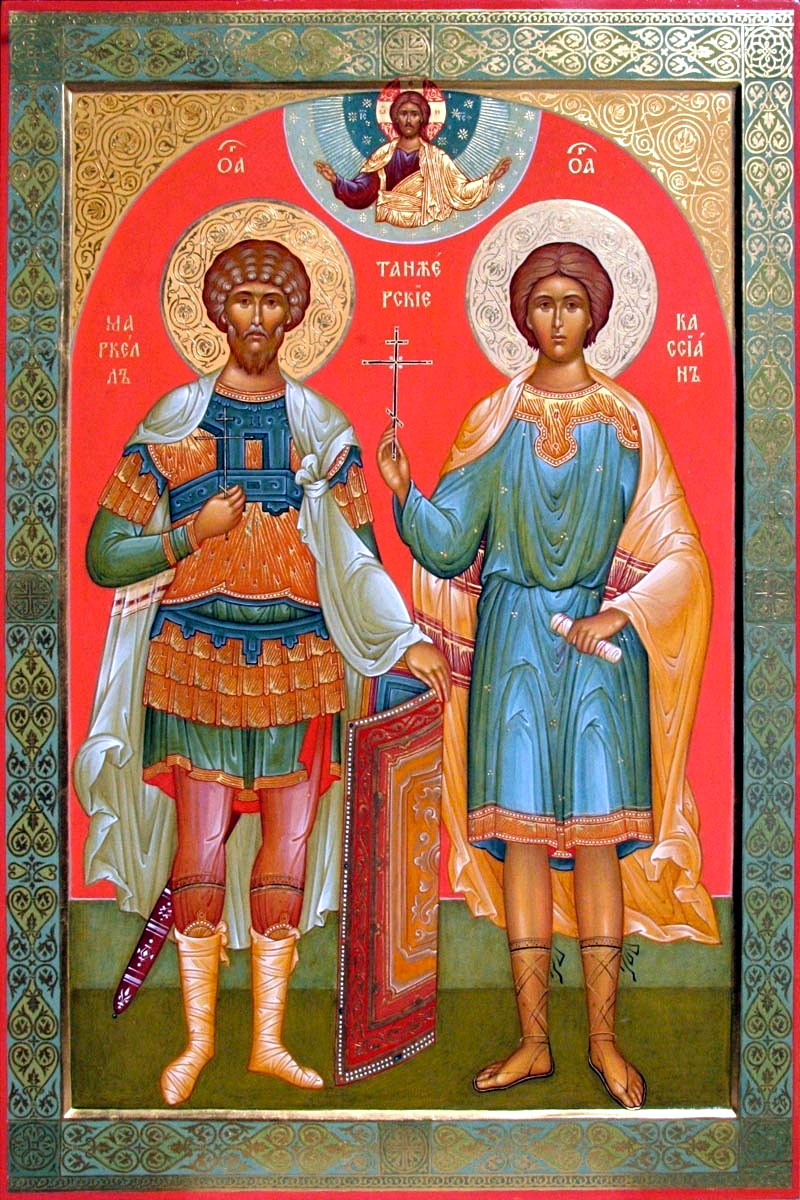Typasius the Veteran

Coming to terms with the surrounding societal norms of the Roman Empire raised a number of issues for Christians of the first generations. One of the main problems was whether Christians should be allowed to perform military service. This controversy became particularly relevant since the beginning of the third century. The life and death of the martyr saint Typasius, a former soldier living nearby the small town of Tigava, in the North African province of Mauretania Caesariensis, vividly reflect the different layers of this controversy.
Typasius is one of the less famous saints of Late Antiquity. He is known only from one source probably composed at the end of the fourth century: the passio S. Typasii veterani (BHL 8354). The fact that the passio Typasii is preserved in only a single manuscript might explain at least some of the logical contradictions in its narrative (Bibliothèque nationale de France, Codex Parisinus lat. 5306).
According to the passio, Typasius lived in the time of the emperors Diocletian and Maximian who were the most infamous persecutors in the eyes of the Christians of the fourth-century. Typasius had resigned from military service “to surrender himself totally to Christian devotion”. However, his retreat was fated to fail. As the Quinquegentanei, a local nomadic tribal confederation, ravaged the Mauretanian provinces, the emperor Maximian came to North Africa to fight back the barbarians. Thus, Typasius was forced to rejoin the army.
The night before battle, the archangel Gabriel appeared to Typasius in a dream. He advised the veteran to refuse the usual imperial donation for the soldiers. Facing the emperor, Typasius predicted victory in battle if Maximian released him from military service and allowed him to serve as a soldier of Christ instead. After having overwhelmingly defeated the barbarians, the emperor fulfilled his promise and granted Typasius an honorable discharge from the army. Typasius then returned home, put aside his military equipment and built a monastery on his own land.
A few years later, the passio Typasii continues, the emperors Diocletian and Maximian initiated a renewed persecution of the Christians. According to the passio, as part of the measures against the Christians, veterans were recalled to military service (a circumstance not confirmed otherwise). At that point, Typasius was brought before the governor of the province, but he insisted on refusing to join the army and to sacrifice to the pagan gods by virtue of the honorable discharge the emperors had previously granted him. When the governor’s soldiers tried to forcibly put on Typasius his own military equipment, the veteran’s belt tore to pieces and his weapons shattered. These miraculous events did not impress the imperial representatives. On the contrary, since Typasius persisted in his resistance, he was sentenced to death. Shortly after his beheading, the martyr began to demonstrate his power. The soldiers who arrested him died of a sudden fever and the emperors Diocletian and Maximian suffered from painful disease and died in agony.
The passio S. Typasii veterani is a highly interesting text in many respects. First of all, it paints a colorful picture of Roman military culture and of Rome’s military conflicts with the North African nomadic tribes. Moreover the passio reflects how Christians thought about military service. Generally speaking, the Christian controversy over military service appears in various literary sources from the beginning of the third century (for example in the writings of Tertullian). At that time, a considerable number of Christians appears to have served in the Roman army, not least because military service offered opportunities for social advancement. The debate about whether it is acceptable for Christians to serve in the army has not always been straightforward. Two key problems stood out. The most obvious one was the obligation of military men to participate in pagan sacrifices. The necessity to sacrifice particularly affected the officers ranks. Christian apologists unanimously emphasized that participating in sacrifices was on no account compatible with the Christian faith and in fact, besides Typasius, there are many other examples of Christian soldiers becoming martyrs because they refused to participate in pagan sacrifices (as the example of Marcellus of Tangier, a soldier from the province of Mauretania Tingitana, demonstrates). In addition, literary sources offer reflections on the fact that service in the army was seen as not consistent with the Christian commandment not to kill. Thus, according to some Christian authors military service should have been rejected. Only with the gradual Christianization of Roman politics, which began under the emperor Constantine and developed thereafter, did it become possible to gradually establish a new balance between Christian faith and military service.
Dr. Daniel Syrbe (FernUniversität Hagen)


